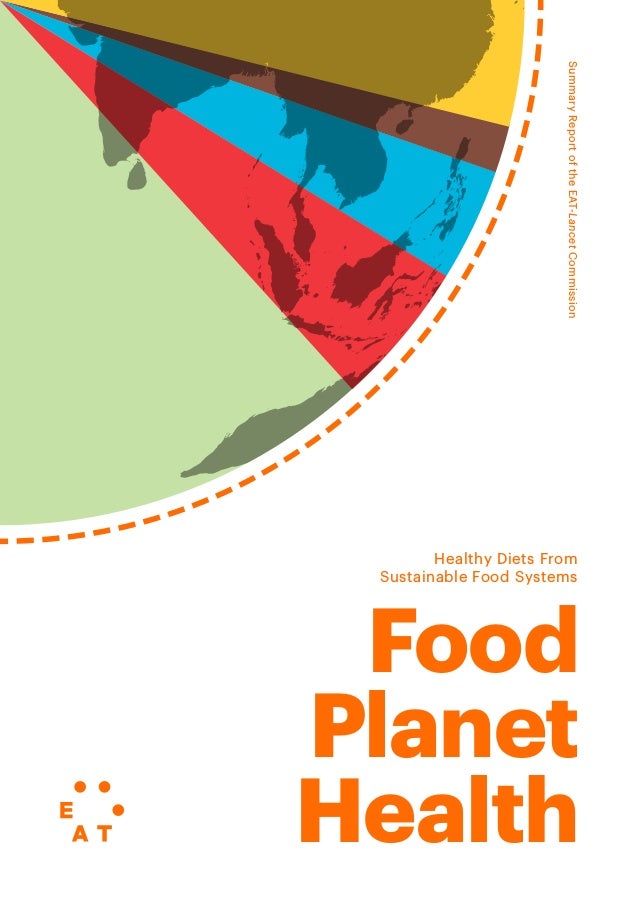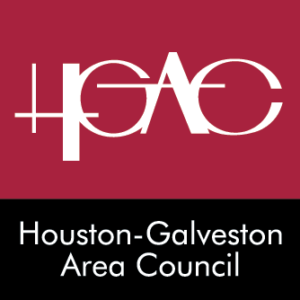Calendar
The focus of this presentation will be on light pollution and the adverse impact from unshielded light on plants, animals and humans, including glare and visibility problems and health effects. Deborah will discuss the threat of the proliferation of bright white street lighting and present solutions that double down on the advantages of LED light. Learn how to light with minimum impact for greater visibility at the least energy use and where to buy good quality lighting.
Interested in Urban Forestry? Come join Texas A&M AgriLife Extension, HAUFC and ISA-TX for a great day of education. Topics include: Emerald Ash Borer – Coming to a City Near You, Using Tree Growth Regulators to Reduce Pruning Costs, and Greening the Houston Region – Partnerships and Projects that Support the Urban Forest.
Duke University Press Description of Book:  “Based on fieldwork among state officials, NGOs, politicians, and activists in Costa Rica and Brazil, A Future History of Water traces the unspectacular work necessary to make water access a human right and a human right something different from a commodity. Andrea Ballestero shows how these ephemeral distinctions are made through four technolegal devices—formula, index, list and pact. She argues that what is at stake in these devices is not the making of a distinct future but what counts as the future in the first place. A Future History of Water is an ethnographically rich and conceptually charged journey into ant-filled water meters, fantastical water taxonomies, promises captured on slips of paper, and statistical maneuvers that dissolve the human of human rights. Ultimately, Ballestero demonstrates what happens when instead of trying to fix its meaning, we make water’s changing form the precondition of our analyses.”
Behind the Scenes at the High Island Sanctuaries
with Pete Deichmann, Coastal Sanctuaries Manager
High Island is world renowned for its productive rookery island and excellent birding during Spring Migration, but that’s not all. Houston Audubon is constantly working to improve habitat for both birds and visitors alike. Come hear more about what it takes to manage High Island. Coastal Sanctuaries Manager Pete Deichmann will talk about ongoing and past habitat projects as well as plans for the future.
Social at 7:00 PM; Presentation at 7:30 PM
This event is free and open to the public. Please register so we have an idea of how many are attending.
“Actions of Change: From the Civil Rights Movement to the Struggle for Environmental Justice”
In partnership with Texas Southern University Barbara Jordan Mickey Leland School of Public Affairs (3401 Cleburne St)
TSU McCoy Auditorium, Room 105
Admission free and open to the public, registration required. Paid parking available.
Celebrating the life and legacy of the Rev. Dr. Martin Luther King, Jr., the Rothko Chapel, in partnership with the TSU Barbara Jordan-Mickey Leland School of Public Affairs, presents a conversation exploring the influence of MLK and the Civil Rights Movement on the environmental justice movement. Scholars, activists and community leaders will explore the evolution of the environmental justice movement, continued environmental challenges and inequities faced by vulnerable and frontline communities, and actions being taken to improve the health of the region.
Presenters include Dr. Robert D. Bullard, professor of urban planning and environmental policy at Texas Southern; Yvette Arellano, policy researcher and grassroots advocate at Texas Environmental Justice Advocacy Service (t.e.j.a.s.); Bridgette Murray, founder and Executive Director of ACTS-Achieving Community Tasks Successfully; and Richard M. Mizelle, Jr., Associate Professor of History and Director of Graduate Studies at University of Houston.
This program is presented as part of the Rothko Chapel’s two-year programmatic initiative exploring climate change’s impact on individuals around the world, culminating with the biennial Rothko Chapel Óscar Romero Award for Human Rights in 2020.
Learn more about the presenters and register through the ticketing link.
Dr. Karoline Mueller will speak.
“Restoring natural vegetation, such as forest, is currently the best option at scale for removing CO2 from the atmosphere, and must begin immediately to be effective within the required timescale of reaching net zero emissions by 2050. The livestock sector, having largely displaced natural carbon sinks, continues to occupy much of the land that must be restored.†(1)
“The scientific world is very aware of the intersection between food choices and their effects on both climate and human health. Michael Clark at the University of Oxford said: “Continuing to eat the way we do threatens societies, through chronic ill health and degradation of Earth’s climate, ecosystems and water resources.”
In this presentation, we will look at the way different food choices impact our planet negatively and why the same food choices also contribute to chronic illnesses that threaten societies through the high burden of personal suffering and staggering health care costs.
Although different groups give vastly different estimates of the effect of food choices on climate crisis, the very conservative number in the FAO report, Tackling Climate Change Through Livestock(2), comes to 14.5% of total greenhouse gas emissions. This roughly equals the number for all transportation contributions. Other estimates include future land usage changes that will provide additional carbon sinks and increase the positive effect drastically.
The 2015-2020 USDA Dietary Guidelines stated: “About half of all American adults—117 million individuals—have one or more preventable chronic diseases, many of which are related to poor quality eating patterns and physical inactivity.†While official publications(3) use the ‘reduce saturated fat’ as code for reducing animal products, many medical doctors and scientists send a clear message that choosing health-promoting vegetables, fruit, legumes, and whole grains, while omitting animal products, leads to good health outcomes.(4, 5)
Our choices can open the door to a win-win outcome.
For more information contact, Nan Hildreth at 713-504-9901 or NanHildreth@riseup.net
 On Jan. 26, from 9:45-11 a.m., Christ the King Lutheran Church will host a presentation by Dr. Stephen Long, a public health physician, on the EAT Lancet Commission on Food, Planet & Health: Healthy Diets from Sustainable Food Systems report. This study, compiled by 37 scientists and other experts from 16 countries, aims to establish a global food economy that could combat chronic diseases in wealthy nations like ours and provide better nutrition for poor ones, all without destroying the planet. For more information, see the Facebook event.
On Jan. 26, from 9:45-11 a.m., Christ the King Lutheran Church will host a presentation by Dr. Stephen Long, a public health physician, on the EAT Lancet Commission on Food, Planet & Health: Healthy Diets from Sustainable Food Systems report. This study, compiled by 37 scientists and other experts from 16 countries, aims to establish a global food economy that could combat chronic diseases in wealthy nations like ours and provide better nutrition for poor ones, all without destroying the planet. For more information, see the Facebook event.
 H-GAC’s Parks and Natural Areas Summit and Awards Ceremony will be held from 9 a.m. to noon on Friday, February 14, 2020, at H-GAC Conference Room B, Second Floor. The Summit will include presentations on trends and topics related to parks and natural areas.
H-GAC’s Parks and Natural Areas Summit and Awards Ceremony will be held from 9 a.m. to noon on Friday, February 14, 2020, at H-GAC Conference Room B, Second Floor. The Summit will include presentations on trends and topics related to parks and natural areas.
The event will also include the annual Parks and Natural Areas Awards recognition ceremony. These projects serve as models for planning and project implementation for parks and natural areas in the region. Projects will be honored in three categories: Planning Process, On-the-Ground Projects Over $500,000, and On-the-Ground Projects Under $500,000.
A light breakfast will be served. Registration and breakfast begin at 9:00 a.m., followed by topic speakers at 9:30 a.m. The awards program will begin at 10:30 a.m. and will be followed by networking until noon.
Agenda
9:00 a.m. Â Â Registration and Breakfast
9:30 a.m.   Presentation – Claire Hempel, Design Worskshop, Equity In Parks
10:00 a.m. Presentation – Katie Coyne, Asakura Robinson, TBA
10:30 a.m. Parks and Natrual Areas Annual Awards Ceremony
11:30 a.m. Networking
The Parks and Natural Areas roundtable serves as a forum for discussion of issues related to parks and natural areas and promotes the Parks and Natural Areas awards program. The roundtable facilitates information exchange and planning efforts between various stakeholders and collaborators to protect and preserve parks and natural areas across the region.
Celebrate National Invasive Species Awareness Week by learning about common invasive plant species in the Texas Gulf Coast region and how they affect the local environment. Spend the morning visiting with and learning from local plant experts to understand more about the effects of invasive plant species in our public lands and our own backyards. Learn which Texas native plants can be selected to replace invasive species in your garden.
The morning includes presentations, educational booths, a make-your-own seed ball station, a Texas native tree giveaway hosted by Precinct 4’s Legacy Trees Project, and breakfast refreshments.
Research scientist Erin Kinney with Houston Advanced Research Center will share information on HARC’s invasive species guide and website at 9:30 a.m. Kinney will explain how to navigate galvbayinvasives.org and how to use the online tools to become familiar with local invasive species and their impact on the ecosystems.
Della Barbato, the director of education at the Native Prairies Association of Texas, will present “Nine Natives†at 11 a.m. The discussion will cover nine native plants that are not only beautiful and easy to grow but beneficial for pollinators and wildlife.
Visitors can also explore educational booths provided by the Mercer Botanical Center, Harris County Master Gardeners – a Texas A&M AgriLife Extension Service, the Native Plant Society of Texas, HARC, Baldwin Boettcher Branch Library, and USDA Animal and Plant Health Inspection Service.
This is a free event offered at Mercer’s East Side Gardens. No registration required. This is an outdoor event–dress for the weather. For more information, call 713-274-4160.
Local and state officials are seasoned professionals in crisis response. Yet, the array of risks they face–cyber attacks, severe weather and domestic terrorism–are challenging the conventional wisdom of crisis management. Adapting to the new normal of disasters demands a renewed approach. At this event, Route Fifty will explore how Houston in the wake of repeat disasters is assessing its future risk, planning for the challenges ahead and renewing its spirit of resilience.
Confirmed Speakers:Â
- Marissa Aho, AICP, Chief Resilience Officer, Office of Mayor Sylvester Turner, City of Houston
- TaKasha L. Francis, Director, Department of Neighborhoods, City of Houston
- Michael Dailey, Chief, Outreach Programs Branch, Region VI, Cybersecurity and Infrastructure Security Agency)
- Alison Hare, MIA, Community Resilience Officer, Office of Public Health Preparedness & Response, Harris County Public Health
- Jeffry Evans, Meteorologist in Charge, National Weather Service, Houston/Galveston, TX
- Kyle Shelton, PhD, Deputy Director, Kinder Institute for Urban Research, Rice University